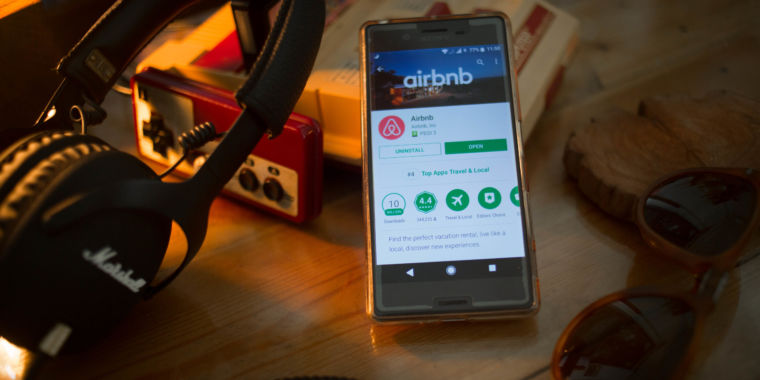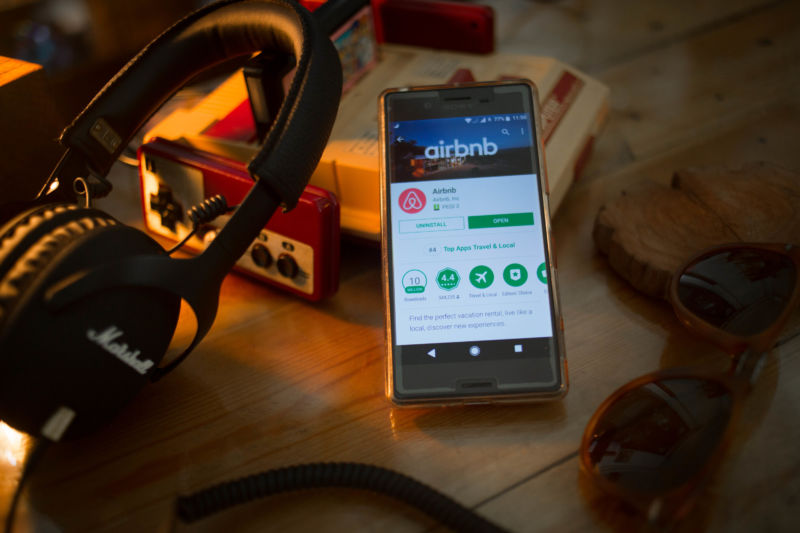

In recent weeks, both
Uber and
Airbnb have sent formal letters to the Securities and Exchange Commission, asking the regulatory agency to
expand efforts that would allow drivers and hosts to also be paid in company shares. Exactly how this would work in practice remains unclear.
The move comes nearly three months after the SEC asked for public comment in a proposed revision to “Rule 701,” which currently requires that anyone paid in stock be an investor or an employee. Those directly involved in the “gig” or “sharing” economies are generally not considered to be employees and so, for now, are ineligible for this arrangement.
In fact, Uber told the SEC that it prefers the term “entrepreneurial economy“—odd, given that Uber drivers have no ability to set their own price. Uber also refers to its drivers as “driver partners,” suggesting that those behind the wheel have more power than they do in actuality.
“Uber, instead of just admitting that their drivers are employees, is trying to create a regulatory environment in which, upon going public, they can issue stock to drivers as compensation,” Veena Dubal, a labor law professor at the University of California, Hastings, in San Francisco, emailed Ars.
As these companies are believed to be headed toward an initial public offering—selling stock to the public—they are at the forefront of Silicon Valley’s efforts to push for this rule change.
Ars contacted a number of Uber and Airbnb’s peers; only a few got back to us.
“We have not sent a similar letter as we are not in the same pre-IPO situation as Uber and Airbnb in how they communicate with the SEC,” Amelia McLear, a spokeswoman for TaskRabbit, emailed Ars. “We are generally supportive of their requests in the same way that we are supportive of other efforts to support independent contractors being successful; for example, we support the ongoing discussion around providing portable benefits to independent contractors. We are proud that TaskRabbit’s network offers Taskers the flexibility and ability to earn a meaningful income on their own terms.”
“Have their cake and eat it, too”
Ars has reported previously that Uber in particular has fought tooth and nail against having its drivers be classified as employees. The company recently won a major case on this exact issue at
the 9th US Circuit Court of Appeals in San Francisco.
By having significantly fewer employees than it otherwise would, Uber likely saves millions of dollars each year by not paying for drivers’ health, retirement, unemployment, or other benefits that typically come with full-time employment.
According to Uber’s own October 11 letter, which was first published last week by Axios, Uber noted that “various technology platforms” have now made it “easier” for workers to “earn a living as a participant in this entrepreneurial economy.” This is despite the fact that recent studies have shown that Uber drivers’ median hourly wage is often below minimum wage after expenses.
For its part, Airbnb declined to respond to Ars’ specific question as to how this would work in practice, referring us only to a series of statements attributed to Airbnb CEO Brian Chesky.
“Hosts keep up to 97 percent of the price they charge for their home and we’d like to expand the ways they can leverage our community model and access other economic opportunities,” Chesky said in a statement sent to Ars by spokesman Nick Papas. “Our community model is different than a business with a traditional hierarchical structure and we are excited to have the chance to work with the SEC to consider reforms that could make more economic opportunities available to more people.”
Dubal noted that some companies, including Amazon, already offer stock as bonuses to even their highest-paid employees.
“This has been great for Amazon employees in the last few years because Amazon stock has done well,” she said. “My concern is that creating such an exception further entrenches the fiction that these workers are not employees. Creating a regulatory environment in which Uber can issue stock as compensation without simultaneously offering any of the safety net benefits associated with traditional employment allows them to have their cake and eat it, too. It’s another opportunity to pass the risk of doing business onto workers.”








